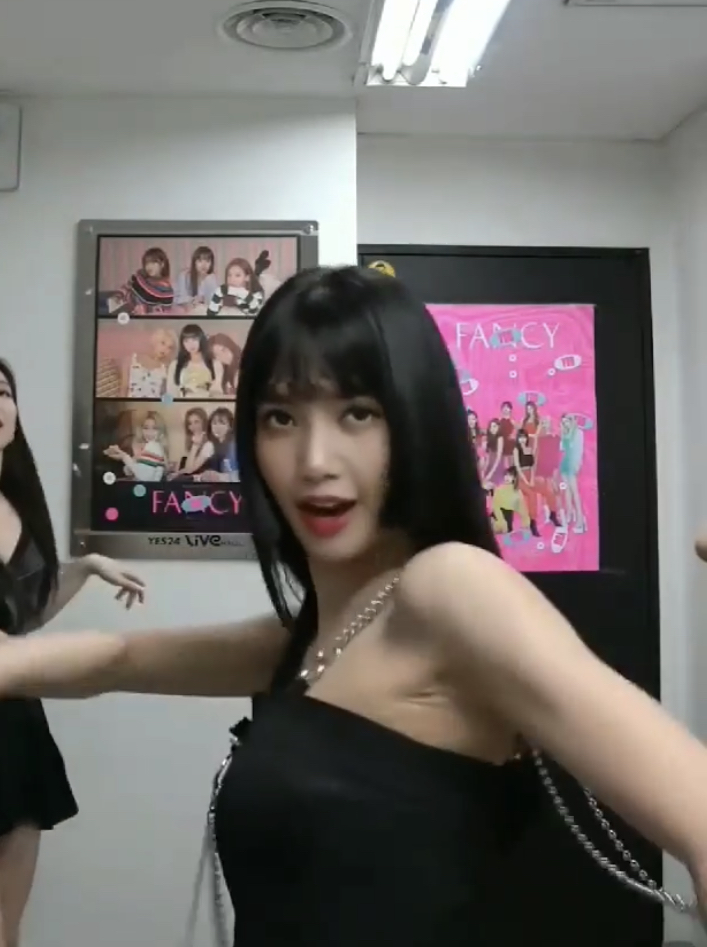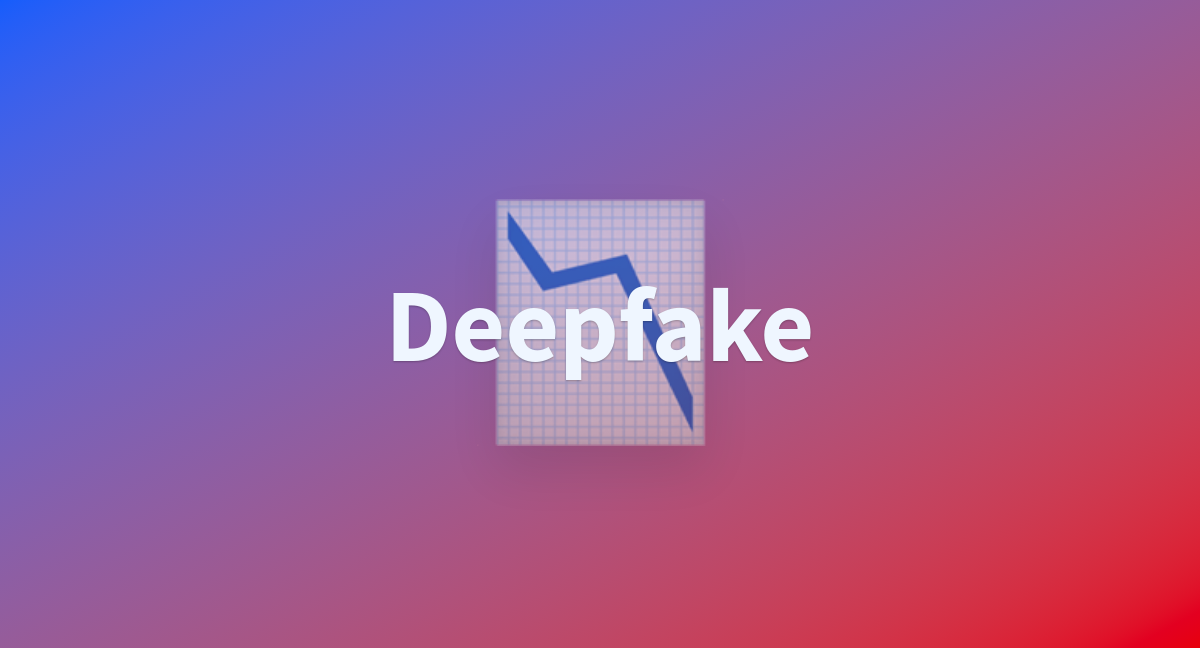Alright, let's dive straight into it. Deepfake Kpop is not just a buzzword anymore; it's a phenomenon that's reshaping the entertainment industry as we know it. Imagine your favorite Kpop idol performing a concert from the comfort of their home using AI. Or, what if an artist who retired years ago could still release music through deepfake technology? Sounds crazy, right? But that's exactly where we're headed. Deepfake Kpop isn't just about fakes; it's about innovation, creativity, and pushing boundaries in the world of music and art. so buckle up, because this is gonna be one wild ride.
Let me paint you a picture. The Kpop industry is already massive, with billions of fans worldwide. Now, imagine combining that with cutting-edge AI technology. You get deepfake Kpop, a space where virtual performances, AI-generated music, and even digital avatars of idols become possible. But hey, it's not all sunshine and rainbows. There are ethical concerns, copyright issues, and questions about authenticity. This tech is powerful, but it also raises some serious questions about the future of entertainment.
Deepfake Kpop is a double-edged sword. On one hand, it opens up endless possibilities for creativity and innovation. On the other hand, it brings challenges that the industry has never faced before. From fake performances to unauthorized use of an artist's likeness, the potential for misuse is real. But don't worry, we're here to break it all down for you. So, let's explore the world of deepfake Kpop and see what it means for the future of music and entertainment.
Read also:Alana Cho Erone The Rising Star In The World Of Digital Media
What Exactly is Deepfake Kpop?
Deepfake Kpop refers to the use of artificial intelligence to create realistic but fake videos, images, or audio of Kpop idols and performances. This technology allows for the manipulation of existing media to create something entirely new. For example, you can take a video of a Kpop group performing one song and use deepfake technology to make it look like they're performing a completely different song. It's like magic, but with code instead of wands.
But how does it work? Deepfake technology uses machine learning algorithms to analyze and replicate human features, movements, and voices. This means that with enough data, you can create a digital version of an idol that looks and sounds almost identical to the real thing. It's not just about swapping faces; it's about recreating the entire performance, from the dance moves to the vocals. And the best part? The technology is getting better every day.
How Deepfake Kpop is Revolutionizing the Industry
Deepfake Kpop is more than just a novelty. It's revolutionizing the way we consume music and entertainment. Here are a few ways it's making waves:
- Virtual Concerts: Imagine attending a concert where your favorite Kpop idols perform live, but they're not actually there. With deepfake technology, virtual concerts are becoming a reality, allowing fans from all over the world to experience live performances without leaving their homes.
- AI-Generated Music: Deepfake technology isn't just about visuals. It's also being used to create AI-generated music that sounds like it was made by your favorite artists. This opens up new possibilities for collaboration and creativity in the music industry.
- Digital Avatars: Some Kpop agencies are already experimenting with creating digital avatars of their idols. These avatars can be used in a variety of ways, from social media to virtual reality experiences.
Biography: The Rise of Deepfake Technology
Before we dive deeper into deepfake Kpop, let's take a moment to understand the history of deepfake technology. Here's a quick overview:
| Year | Milestone |
|---|---|
| 2014 | Deepfake technology was first introduced by Ian Goodfellow and his team at Google. |
| 2017 | The term "deepfake" was coined on Reddit, where users began experimenting with the technology to create fake celebrity videos. |
| 2019 | Deepfake technology gained mainstream attention when a video of former US President Barack Obama went viral. |
| 2020 | Deepfake technology started being used in the entertainment industry, including Kpop. |
Key Players in the Deepfake Kpop Scene
Several companies and individuals are leading the charge in the deepfake Kpop scene. Here are a few worth mentioning:
- Soompi: A popular Kpop news site that frequently covers deepfake technology and its impact on the industry.
- Big Hit Music: The agency behind BTS has been exploring the use of deepfake technology for virtual concerts and digital avatars.
- AI Music Lab: A startup that specializes in AI-generated music, including deepfake Kpop tracks.
Deepfake Kpop: The Good, the Bad, and the Ugly
Like any new technology, deepfake Kpop has its pros and cons. Let's break it down:
Read also:Dass449 Your Ultimate Guide To Understanding The Phenomenon
The Good
Deepfake Kpop offers numerous benefits for both artists and fans. Here are a few:
- Increased Accessibility: Virtual concerts and digital avatars make it easier for fans to connect with their favorite idols, regardless of location.
- Enhanced Creativity: Deepfake technology allows for new forms of artistic expression, from AI-generated music to virtual performances.
- New Revenue Streams: Kpop agencies can monetize deepfake content through virtual concerts, merchandise, and collaborations.
The Bad
However, deepfake Kpop also raises several concerns:
- Authenticity Issues: Fans may struggle to differentiate between real and fake content, leading to confusion and disappointment.
- Copyright Concerns: Unauthorized use of an artist's likeness or music can lead to legal issues and disputes.
- Ethical Dilemmas: The use of deepfake technology raises questions about consent, privacy, and the impact on an artist's reputation.
The Ugly
And then there's the ugly side of deepfake Kpop:
- Misinformation: Deepfake videos can be used to spread false information, misleading fans and damaging an artist's image.
- Exploitation: There's a risk of deepfake technology being used to exploit artists, especially those who are already vulnerable.
Deepfake Kpop and the Future of Entertainment
So, where is deepfake Kpop headed? The possibilities are endless. Here are a few predictions:
- More Virtual Concerts: As the technology improves, we can expect to see more virtual concerts featuring deepfake versions of Kpop idols.
- AI-Driven Music Production: AI-generated music is likely to become more prevalent, allowing for faster and more cost-effective music production.
- Enhanced Fan Engagement: Deepfake technology could be used to create personalized experiences for fans, such as custom virtual meet-and-greets.
Challenges to Overcome
Of course, there are challenges that need to be addressed:
- Regulation: Governments and industry bodies need to establish guidelines for the use of deepfake technology in entertainment.
- Education: Fans and artists alike need to be educated about the potential risks and benefits of deepfake Kpop.
- Innovation: The industry needs to continue pushing the boundaries of what's possible with deepfake technology while maintaining ethical standards.
How to Spot a Deepfake Kpop Video
With so many deepfake Kpop videos out there, it's important to know how to spot a fake. Here are a few tips:
- Check for Inconsistencies: Look for glitches or inconsistencies in the video, such as unnatural movements or facial expressions.
- Verify the Source: Make sure the video comes from a reputable source and hasn't been altered.
- Use Detection Tools: There are several tools available that can help detect deepfake videos, such as Deeptrace and Sensity.
Why Authenticity Matters
Authenticity is key in the entertainment industry. Fans want to connect with real artists, not digital replicas. Deepfake Kpop has the potential to blur the lines between reality and fiction, which can be both exciting and concerning. It's important for artists and agencies to be transparent about their use of deepfake technology and to prioritize authenticity in their content.
Deepfake Kpop: The Ethical Debate
The use of deepfake technology in Kpop raises several ethical questions. Here are a few to consider:
- Consent: Do artists give their consent for their likeness to be used in deepfake content?
- Privacy: How does deepfake technology impact an artist's privacy and personal life?
- Impact on Reputation: Can deepfake videos damage an artist's reputation or lead to misunderstandings among fans?
What Can Be Done?
Addressing these ethical concerns requires collaboration between artists, agencies, and fans. Here are a few suggestions:
- Establish Clear Guidelines: Industry bodies should create guidelines for the ethical use of deepfake technology in entertainment.
- Promote Transparency: Artists and agencies should be transparent about their use of deepfake technology and how it impacts their content.
- Encourage Education: Fans should be educated about the potential risks and benefits of deepfake Kpop to make informed decisions about the content they consume.
Conclusion: The Future is Now
Deepfake Kpop is here, and it's not going anywhere. While it offers exciting possibilities for creativity and innovation, it also raises important questions about authenticity, ethics, and the future of entertainment. As fans, artists, and industry professionals, it's up to us to navigate this new landscape responsibly and ethically.
So, what's next? Keep an eye on the latest developments in deepfake technology and how it's being used in the Kpop industry. Stay informed, stay critical, and most importantly, stay engaged. And if you enjoyed this article, don't forget to leave a comment, share it with your friends, or check out some of our other articles on the latest trends in music and entertainment. The future of deepfake Kpop is in our hands, and it's up to us to shape it responsibly.
Table of Contents
- What Exactly is Deepfake Kpop?
- How Deepfake Kpop is Revolutionizing the Industry
- Biography: The Rise of Deepfake Technology
- Key Players in the Deepfake Kpop Scene
- Deepfake Kpop: The Good, the Bad, and the Ugly
- Deepfake Kpop and the Future of Entertainment
- How to Spot a Deepfake Kpop Video
- Why Authenticity Matters
- Deepfake Kpop: The Ethical Debate
- Conclusion: The Future is Now


